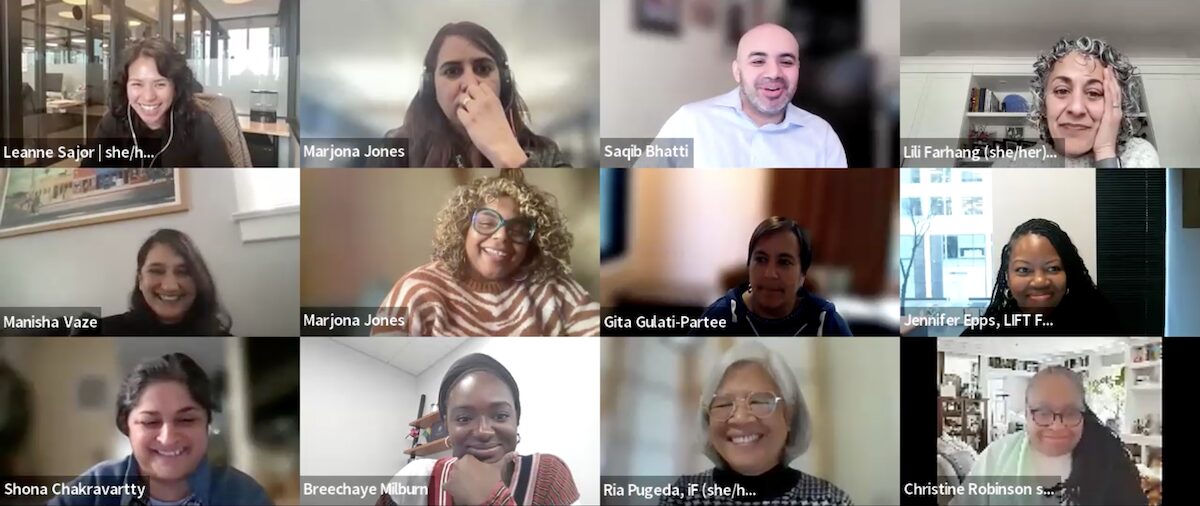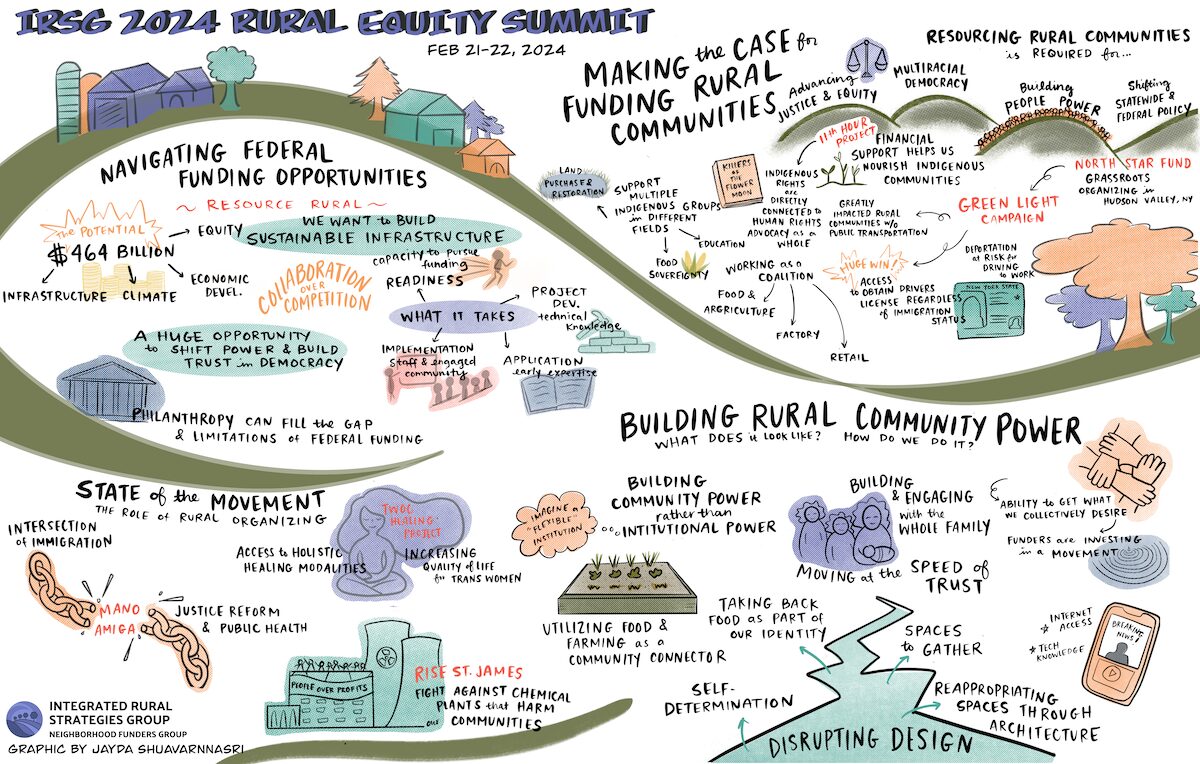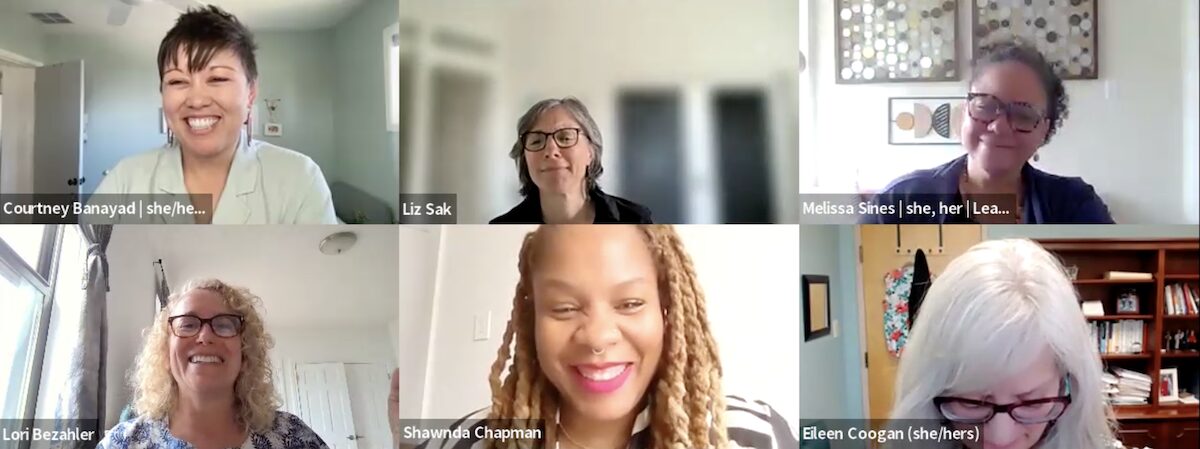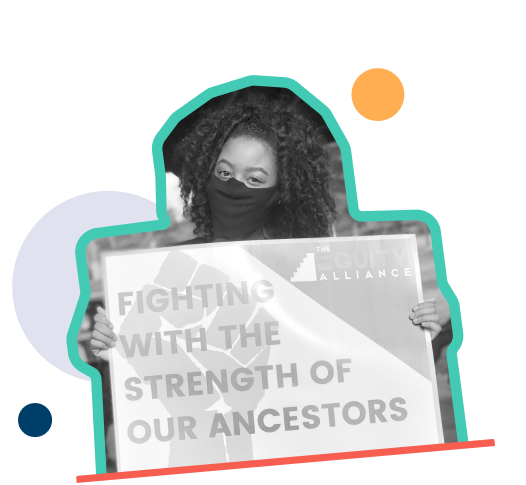Dear friend,
A political home derives some of its greatest strength from the intentional care and participation of its members. When we say that Neighborhood Funders Group offers grantmakers a political home — a place to connect, strategize, and take action — it is with recognition that joyful, inspiring organizing spaces are created in community. For NFG and the funders we co-conspire with, shifting power in philanthropy toward justice and liberation requires building trust, leading with our values, and situating the self-determination and lived experience/expertise of BIPOC and low-income communities at the forefront of our grantmaking processes and systems.
Over the last six months, our funder organizing and political education work has amplified the voices and actions of aligned grantmakers and movement partners. NFG program leads, often in collaboration with our members, have created spaces to grapple with a range of challenges organizers are experiencing. In March, NFG’s Funders for a Just Economy’s 2024 Network Strategy Session, “Interlocking Issues of Precarious Work,” speakers discussed the long arc of temporary work and “gigification” that worsens labor conditions for workers everywhere, but most acutely for women, trans, and gender nonconforming folks, BIPOC and immigrant workers, as well as formerly incarcerated people.

During 2024 Rural Equity Summit, hosted by NFG’s Integrated Rural Strategies Group, speakers presented with undeniable clarity that rural lives are not abstract, and that their communities bear the dual burden of both state neglect and selective targeting, as evidenced in judicial rulings that perpetuate environmental racism in “sacrifice zones” such as Cancer Alley. These events also illuminated how grassroots efforts are resulting in tangible and intangible wins. On Day 2 of the Rural Equity Summit, Eric Martinez, Executive Director of Mano Amiga shared how years-long organizing with their partners in Central Texas around decriminalization led to the passage of a ballot referendum that resulted in an 85% reduction in marijuana possession citations and arrests just one year after its passage. (Find recordings and resources from the Summit here!) This is not solitary work, we encourage you to join NFG’s programming not only as a way to bridge your understanding of the organizing ecosystem that most closely touches your work, but also to find aligned peers that will support you in pushing this work toward greater equity and ease for grantees.

After implementing an experimental change with the format of our Member Calls, we have been thrilled by how eager our members have been in proposing topics for community discussion. We have heard how our members are leveraging tools from JustFund to move resources to grantee partners with greater ease; supporting nationwide campaigns for reparations for Black communities; and resourcing BIPOC-led organizations during transitional periods instead of engaging in the “waiting and see” strategy. In these spaces, funders have modeled what is possible for the future of philanthropy, and we hope that our members will continue bringing forth their ideas for showcasing their work to the NFG network. (If you would like to (co)lead a future NFG Member Call, get in touch with Courtney Banayad, Director of Membership and Communications.)
Outside of our webinars, our team has also continued developing the curriculum and containers for our working groups. Through NFG’s Racial Capitalism Community of Practice and the Values Aligned Investment Praxis, funders have interrogated the origins of philanthropy’s twice stolen wealth and what it takes to shift endowment investments that reproduce the same harm this sector is supposedly creating solutions for. In both these settings, participants have developed research, projects, and strategies to help effect change in their institutions. As of this year, these working groups are in their third and second years, respectively, due to the overwhelming level of interest expressed by our members.

We are grounded in the work of durable systems-change within philanthropy, in the fortifying interactions with our members and movement partners. This mid-year recap is a glimpse into the responsive programming we offer for funders interested in supporting racial, gender, economic, disability, and climate justice. As the philanthropic sector becomes more organized and accountable to shifting power and resources to communities, we at NFG are wondering what additional tools do you need, who are the funders you’re co-conspiring with, and what other relationships must be built or nourished? Finding our way through this political moment, together, will require us to answer these questions and so many more. As we move into the next phase of this year, let us continue to dream of what else is possible to actualize fully resourced, self-determined communities.
In solidarity,

